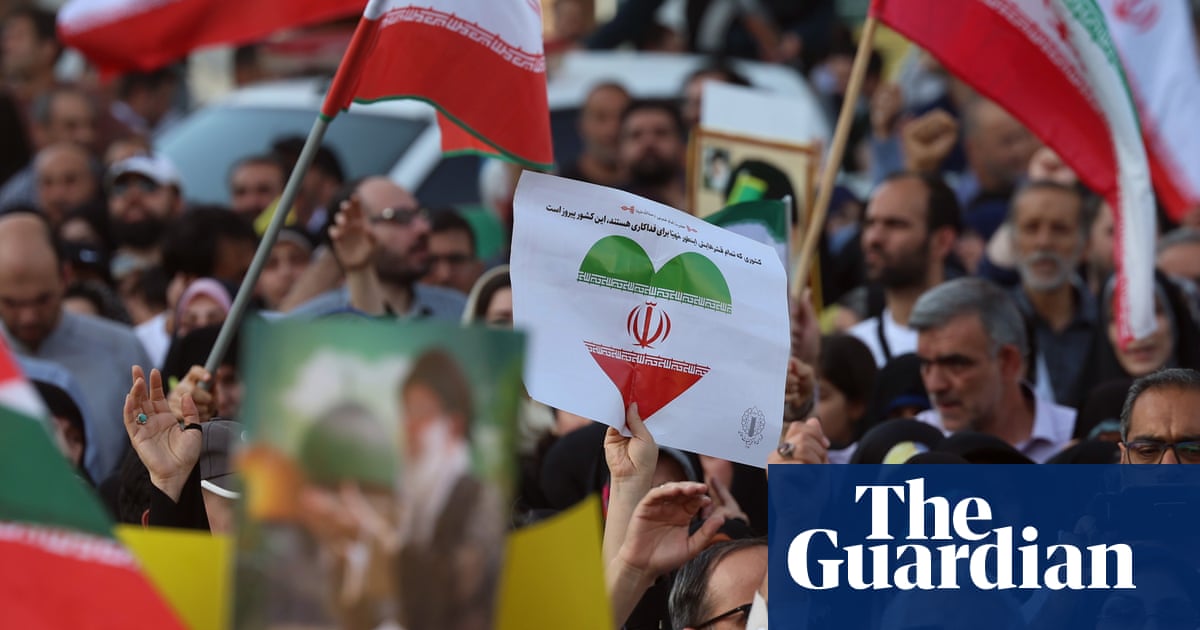Asal* had been expecting the US to bombIran, just not so soon. The 22-year-old Tehran University student had believed Donald Trump when his administration said on Thursday that it would wait up to two weeks before deciding whether to attack Iran, apparently to give diplomacy a chance.
And so at 4am when the newscaster announced the bombing on TV, Asal was in disbelief. She rushed to wake her father and the rest of the family, who huddled together in front of the set as the sounds of the news blended with those of bombings elsewhere in the city.
“We weren’t expecting it yet. But we knew one way or another the US would take part in it,” Asal told the Guardian from Tehran. “We are dead worried. You know, sleep doesn’t come so easy these past few days.”
Iranians woke to the news on Sunday morning that the unthinkable had finally happened: the US had attacked Iran. In the early hours of the morning, American warplanes dropped so-called bunker busters weighing 13,500kg (30,000lb) on the nuclear facilities in Fordow, Natanz and Isfahan.
The news was met with panic in Iran. It prompted a renewed wave of displacement in Tehran as people feared a more intensified assault on the city now that the US was involved.
The question of whether the US would joinIsraelin its military campaign in Iran had hung over the heads of Iranians since the first Israeli bomb fell nearly 10 days earlier. Iranians watched with worry as Trump played coy with reporters, telling them “nobody knows what I’m going to do” about Iran.
On 13 June, Israel had launched hundreds of airstrikes on Iran, an operation it said was aimed at preventing the country from obtaining a nuclear weapon. Iran quickly responded with a barrage of missiles and drones, kicking off an escalating tit-for-tat war.
Israel asked the US to join its military campaign as it was the only country with the firepower necessary to penetrate the Fordow nuclear facility, buried up to 100 metres underground. On Sunday, the US granted its request.
The Iranian government, incensed by the attacks, said it would do whatever was necessary to retaliate. The president, Masoud Pezeshkian, appeared in front of hundreds of protesters in a square in central Tehran, who raised their fists and chanted “Revenge, revenge!”.
Asal has little appetite for revenge, she just wants the war to be over. To her and her friends, the US attack felt like a betrayal. “No one is rooting for either side to win. We just want peace. Not even those Iranians who wanted a regime change are happy. They expected Trump to take a different route or at least give us two weeks,” Asal said.
Trump’s administration has said the strikes were in line with his “peace through strength” doctrine and has urged Iran not to retaliate but instead to return to the negotiating table. Iran’s foreign minister, Abbas Araghchi, flatly rejected the request for talks, telling reporters in Istanbul on Sunday that now was not the time for diplomacy.
To Navid*, Trump’s claims that the US bombing of Iran was a peace initiative rang hollow. The 28-year-old business owner in Tehran had been following international developments closely over the last 10 days, appointed the unofficial source of news for his family.
“Who, exactly, cares about civilians?” he said. “The Israelis? Have they ever shown concern for civilian lives in Beirut or Gaza? The Americans? Did they show any in Libya, Afghanistan or Iraq?”
Instead, he suggested the attack was less about strategy, and more about Trump’s ego. “He always wants to swoop in like Superman and do the things he claims no one else can.”
US officials insisted that the strikes were a one-off and that they had achieved their goals in crippling Iran’s nuclear capabilities. Nonetheless, some Iranians feared that the apparent success of the US operation would inspire either Israel or the US to extend its aims and seek to change the regime in Iran – a fight they did not want to be caught up in, whether they support the government or not.
Ava*, a 25-year-old accountant in Tehran, said: “We are angry, scared and frankly disgusted by not only the regime but also each one of you outside Iran who is sitting in the comfort of your homes and calling for US war on us. Who are you to decide for us?”
*Names have been changed.
